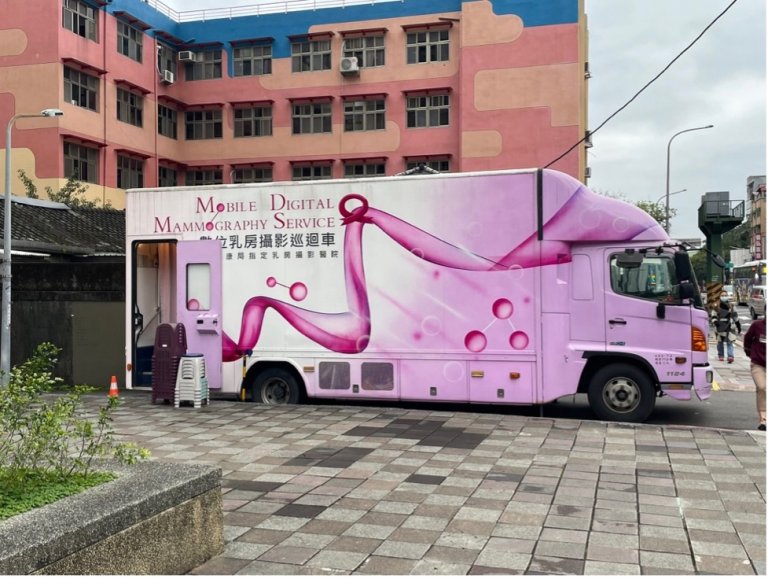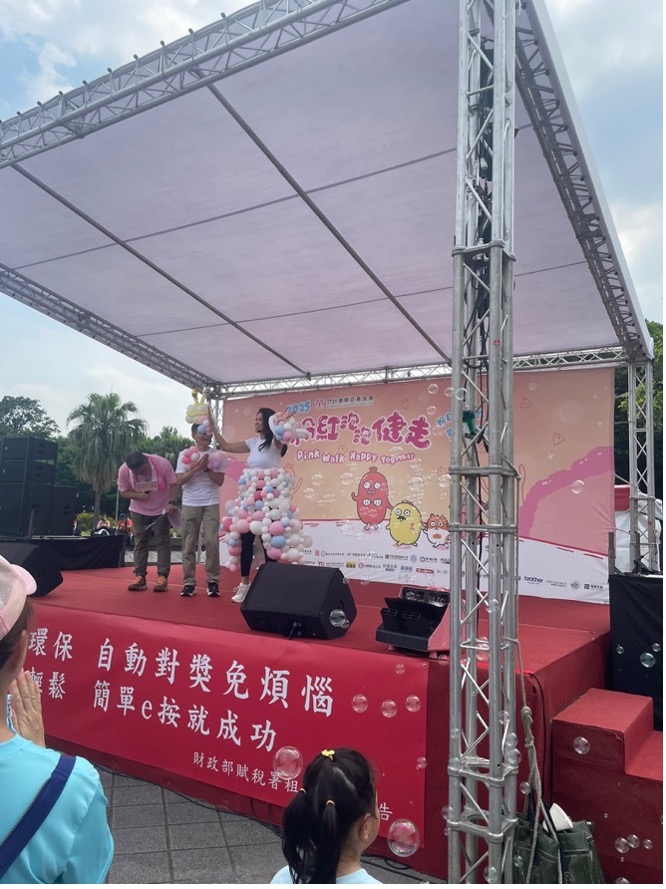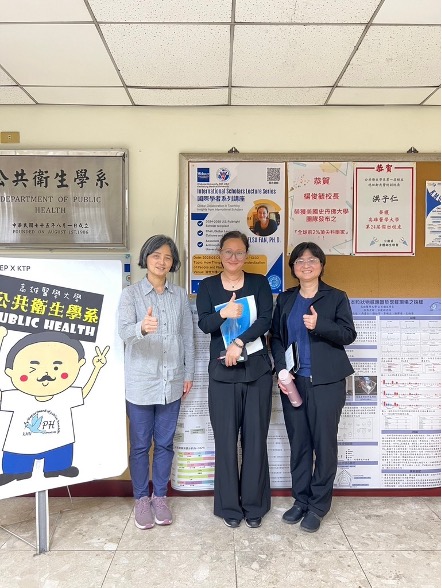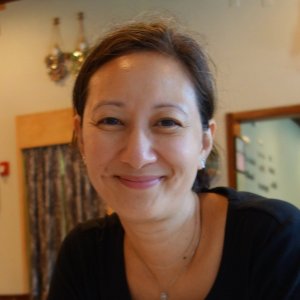I wasn’t sure what to expect when I arrived in Taiwan. Aside from a few short visits in the past, I knew little about the pragmatics of everyday life here. Taiwan was also a new field site for me, where I was beginning a (relatively) new research project on care and breast cancer. But within weeks of arriving, I found it surprisingly easy to settle into life in Taipei; I quickly discovered my favorite neighborhood bakery and a family-run vegetarian restaurant where I became a regular. I was also grateful for the openness with which people received my research; they were interested and eager to connect me with others. As a medical anthropologist working at the intersection of global health and gender, I was excited to explore how Taiwan’s landscape of care shapes women’s breast cancer experiences.
The comment I heard most often when introducing my research was how quickly breast cancer rates have risen in recent years, especially among younger women. Between 1997 and 2016, the age-standardized incidence rate of breast cancer doubled. It is now the most common cancer among women and the third leading cause of cancer-related death. In response, the government has made concerted efforts to promote early detection and treatment by lowering the eligible age for mammography to 40 and expanding access to screening services with mobile mammography units. I came upon one of these mobile units one day walking down the street.

The effectiveness of mobile screening units remains inconclusive, as breast cancer screening rates continue to be low, around 39% (compared to 79% in the U.S.). I wanted to better understand how women with breast cancer in Taiwan think about prevention and care, particularly in a context with universal healthcare coverage. Most of the women I interviewed shared that their diagnosis did not result from a mammogram; instead, many discovered a lump in their breast on their own. Fortunately, I was able to collaborate with four wonderful organizations that helped connect me with women to interview: the Taiwan Breast Cancer Alliance, Formosa Cancer Foundation, Koo Foundation Sun Yat-Sen Cancer Center, and Kaohsiung Medical University. And I made many more connections at Fu-Jen Catholic University Hospital, Mackay Memorial Hospital, and National Taiwan University Hospital.
Partnering with these organizations enabled me to hear from women across different regions of Taiwan and explore regional and cultural distinctions. I interviewed women in Taipei/New Taipei, Taichung, and Kaohsiung. These conversations also allowed me to understand the range of treatment and care perspectives from various institutions, helping me understand how the availability of specific types of care shaped each woman’s illness journey.
My interest in care extends beyond clinical settings to include social forms of support, or their absence, whether from family, friends, colleagues, or, in many cases, support groups. The latter are especially prevalent and are offered through hospitals, community organizations, and online platforms such as Line and Facebook. These groups provide various forms of support: for some women, they serve as a vital source of information, where they can seek advice on coping with chemotherapy and other treatments. For others, they offer a sense of community and shared understanding with peers navigating similar challenges. These organizations also provide practical services tailored to the realities of living with breast cancer, such as wig rentals, educational classes, and counseling.
I was fortunate to be in Taipei during the annual cancer walk hosted by the Formosa Cancer Foundation in May. Held every year, this event draws hundreds of participants in support of breast cancer awareness. This year, decked out in my pink pants, as encouraged by the organizers, I arrived at Flower Expo Park and was welcomed by an enthusiastic crowd of women and their supporters. At the far end of the park stood a stage where performances focused on breast cancer education, including stories shared by women with lived experience. Alongside hundreds of others, I braved the heat to walk the 7-kilometer route, cheered on by volunteers lining the path. The event was both inspiring and uplifting, and I was grateful to be part of it.

Organized By Formosa Cancer Foundation
This walk was just one of many memorable moments during my Fulbright experience. The stories I heard resonated deeply with me, especially as someone who grew up surrounded by women from Taiwan. These women’s illness journeys were marked at different points by fear, uncertainty, conflict, and acceptance. Although none of them used the word “survivor” to describe themselves as is common in the U.S., they showed a fierce commitment to living in the present and looking toward the future. Family, in particular, plays a pivotal role in delivering, withholding, or shaping the kinds of care available to women. This care, in turn, guides the decisions women make about their health.
My focus on breast cancer and care among women in Taiwan reflects my broader interest in how culture and medicine intersect in people’s lives. In this regard, it was valuable to gain a wide range of perspectives and experiences from women across different regions and healthcare institutions. Culture is embedded in many spaces—hospitals, organizations, cities—and working with multiple partners provided greater insight into how these cultural contexts shape the ways women think about health and care, both within and beyond clinical settings.
Because my research engages with global health, I had the opportunity to meet many scholars working in related fields across higher education institutions in Taiwan and to participate in academic exchanges. In mid-June, I attended a two-day medical anthropology conference jointly hosted by the Taiwan Society for Medical Anthropology and the East Asian Medical Anthropology Network. There, I listened to scholars and practitioners from a range of health-related fields share exciting new research on topics such as AI, mental health and depression, aging, and community activism. I especially appreciated the diversity of participants, which included not only medical anthropologists but also healthcare practitioners who drew on ethnographic methods to better understand and address the needs of their patients.
I appreciated these opportunities to foster interdisciplinary dialogue, and am grateful to National Taiwan University, Kaohsiung Medical University, and National Yang Ming Chiao Tong University for inviting me to speak at their institutions, where I was able to share ideas with both students and colleagues across different disciplines. As an anthropologist, I was excited to demonstrate how my background, and particularly my methodologies, can contribute to a stronger understanding of public health challenges. In one lecture, I recall a lively discussion with public health scholars about the kind of depth ethnography offers: not only helping us understand what people do, but how and why they do it. I emphasized the importance of listening closely to people, their words and their stories, as a way to develop public health interventions that are responsive to their social and cultural contexts, rather than relying on standardized solutions that may not fully address their needs.

The importance of social and cultural contexts has been a consistent theme throughout my research on breast cancer. The government has made considerable strides in promoting breast cancer screening. Yet, as described earlier, screening rates remain low. In this context, it becomes essential to understand how women think about health and prevention, and why they may be reluctant to undergo screening. These findings, among others, has helped me better understand not just how women think about health and care but importantly, the social and cultural worlds in which illness exist. The government has made considerable strides in promoting breast cancer screening, including lowering the eligible screening age to 40 (previously limited to ages 45–69, or 40+ only with a family history). Yet, as described earlier, screening rates remain low. In fact, most of the women I interviewed were not diagnosed through mammography; rather, they discovered a lump themselves during routine activities such as showering. As a result, many were diagnosed at stage two or later. In this context, it becomes essential to understand how women think about health and prevention, and why they may be reluctant to undergo screening. These findings, among others, has helped me better understand not just how women think about health and care but importantly, the social and cultural worlds in which illness exist.
This research has been an incredible journey, made possible by Fulbright. Beyond the academic work, the award gave me an unexpected opportunity to reconnect with my heritage. One important aspect of that connection has been food. I grew up eating many of the dishes I encountered in Taiwan, not as something new or strange, but as something comforting and familiar. The smell of beef noodles brings me back to my childhood and the care with which my grandmother prepared the dish. The taste of scallion pancakes reminds me of weekend family drives to Atlanta, the nearest city where we could find them. And the sweetness of almond tofu evokes memories of potluck dinners organized by our small community of friends in Florida. Food represents family, kinship, and community. Being able to connect with my past through these experiences in Taiwan has been deeply meaningful.
Equally important has been the kindness and humanity I experienced during my time here. Everyone I encountered was generous with their time and effort, always willing to help a stranger. I remember standing on the street, trying to find the right bus home, when a woman not only helped me locate the correct one but also introduced me to an app for tracking local buses.
I have countless stories like this, moments when the kindness of others made the transition to a new country feel seamless. This opportunity, made possible by Fulbright, has reminded me of the profound value of human connection and compassion.





